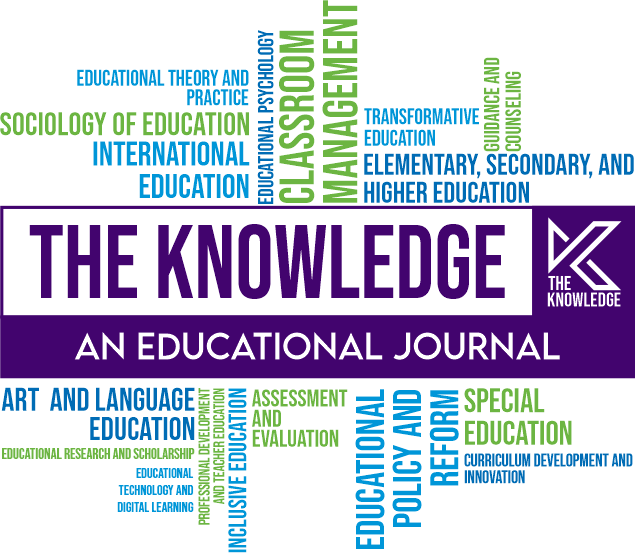Incorporating Islamic Values into Pakistan's Educational Policies: An Evaluative Study
DOI:
https://doi.org/10.63062/tk/2k24a.31024Keywords:
Education, Policies, Islamic Values, Secondary LevelAbstract
In every country, educational policies are made to ensure that education is more effective according to the needs of the time. It is important to maintain a certain standard of education in all of these policies and plans. Due to Pakistan's Islamic heritage, religious considerations have always been regarded as a fundamental element when formulating any policy. As a result of this study, an overview of all educational policies from 1947 to 2017 was provided. The fact that we have observed these policies demonstrates that they all contain some attractive recommendations for providing students with knowledge regarding Islamic values, but sadly, these recommendations remain in paper form, and no practical measures have been taken to implement them. Consequently, researchers observed that students get little benefit from Islamic knowledge. Thus, based on the findings of this study, it is recommended that not only effective educational policies be implemented in order to enhance our educational system but that special attention be paid to ensuring that students are fully aware of Islam, particularly at the secondary level when many changes have occurred between individuals, making it imperative that students receive the best moral training possible.
References
Aggarwal, J. C. (2003). Theory & principles of education. Vikas Publishing House.
Ahmad, M. (1967). The Political Role of the’ulamā’in The Indo-Pakistan Sub-ContinenT. Islamic Studies, 6(4), 327–354.
Ashraf, M. A. (2019). Exploring the potential of religious literacy in Pakistani education. Religions, 10(7), 429. https://doi.org/10.3390/rel10070429
Basri, H. (2024). Integrating Islamic Values into Modern Educational Curricula: Challenges and Opportunities. Journa of Social Science, 1(5), 304-317. https://repository.ar-raniry.ac.id/id/eprint/39077/
Chaube, S. P. (1996). Foundations of education (2nd ed.). Vikas Publishing House Pvt Ltd.
Glennerster, H., & Hoyle, E. (1972). Educational research and education policy. Journal of Social Policy, 1(3), 193–212. https://doi.org/10.1017/s0047279400000556
Government of Pakistan, Ministry of Education. (1947). Proceedings of first educational meeting.
Government of Pakistan, Ministry of Education. (1959). Proceedings of commission on national policy.
Government of Pakistan, Ministry of Education. (1969). Proceedings of national educational policy.
Government of Pakistan, Ministry of Education. (1972-1980). Proceedings of new educational policy.
Government of Pakistan, Ministry of Education. (1978). Proceedings of instructive policy.
Government of Pakistan, Ministry of Education. (1992). Proceedings of new educational policy.
Government of Pakistan, Ministry of Education. (1998-2010). Proceedings of new and recent educational policy.
Government of Pakistan, Ministry of Education. (2009). Proceedings of new and recent current educational policy.
Government of Pakistan, Ministry of Education. (2017). Proceedings of new and recent current educational policy.
Hemchand, T. K. (2009). Problems of secondary education. Crescent Publishing Corporation.
Karim, S., & Aman, K. (2024). Preparing Younger Generations for a Global Future: Re-imagining Citizenship Education in Pakistan. In The Routledge International Handbook of Life and Values Education in Asia (pp. 223–232).
Rehman, M. F. ur, Sr, & Khan, M. H. U., Sr. (2018). The role of educational institutions in islamization, social reformation and national integration in Pakistan. Journal of Religious Studies, Vol. I, Issue: I, I(II), 16–31. https://doi.org/10.33195/uochjrs-v1i2592018
Shakil, A. F., & Akhtar, S. H. (2012). Consideration of Islamic values in the educational policies of Pakistan. Journal of Educational and Social Research, 2(1), 297-297. https://www.richtmann.org/journal/index.php/jesr/article/view/11800
Yasmeen, S. (2012). Islam, identity and discourses in Pakistan. In Routledge Handbook of Political Islam (pp. 183-194). Routledge.
Downloads
Published
Issue
Section
License
Copyright (c) 2025 Copyright in the THE KNOWLEDGE is retained by the author(s). Authors also grant any third party the right to use the article freely as long as its integrity is maintained and its original authors, citation details and publisher are identified.
This work is licensed under a Creative Commons Attribution-NonCommercial 4.0 International License.







